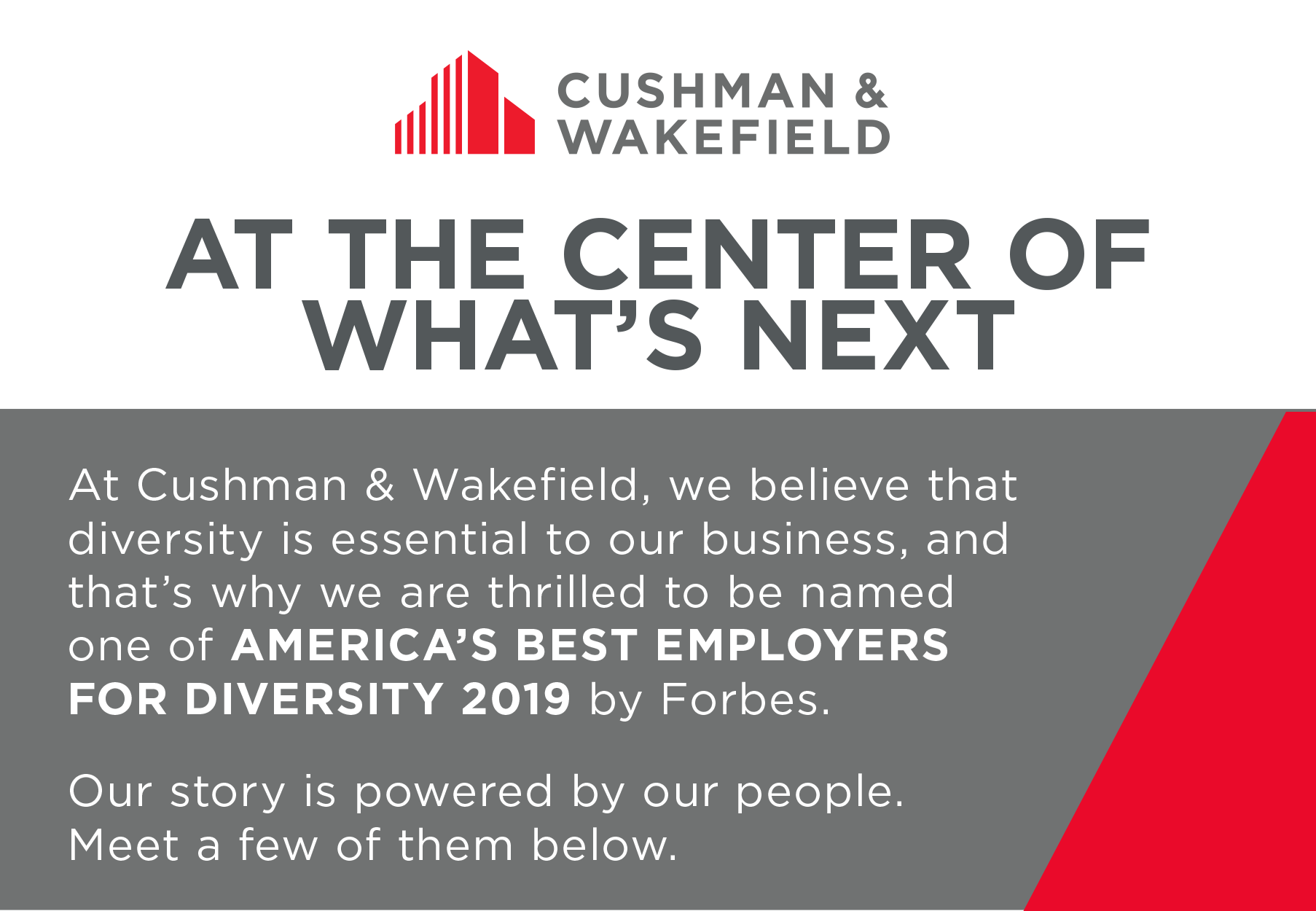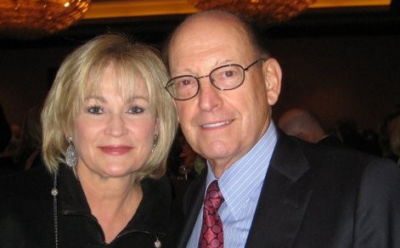| Building on a family legacy of leadership in commercial real estate, Louis (Lou) B. Cushman has worked in the business for 52 years, amassing a bulging portfolio of trophy wins in the U.S. and internationally, industry and community awards, and recognition for growing the Houston office, and mentoring many young people along the way.
Lou and his twin brother, John C. Cushman, III, are still going strong in the firm that was founded 100 years ago in New York City in 1917 by their grandfather, J. Clydesdale Cushman, and their great uncle, Bernard Wakefield. Their steady contribution has gone a long way to defining our unique culture, known for the loyalty and long service of fee earners and staff alike. And, both brothers have the same intensity, focus, passion and pride in delivering outstanding client service that they had over 50 years ago. Lou got his start in New York City in 1965 with his father, John C. Cushman, Jr. (who was Executive Vice President of Cushman & Wakefield, Inc. prior to leaving in 1964 to start his own firm) at J.C. Cushman Inc. In 1967, Lou joined Cushman & Wakefield, working out of the firm’s Wall Street office. In 1971, he relocated to Houston to open and head up the new office. In Houston, Lou served as Senior Vice President of Cushman & Wakefield and Executive Vice President and a Director of Cushman & Wakefield of Texas, Inc. He famously put Houston on the map and rapidly built it up to become one of firm’s most successful offices. According to his brother John: “Lou built the No. #1 office pound for pound that Cushman & Wakefield has anywhere in the world.” Lou says his signature deal was the Pennzoil Company headquarters lease for 250,000 square feet in Pennzoil Place in 1972. This marked his first major lease both in Houston and with Hines, making possible a truly iconic building in the world of office building development. From the very beginning in Houston, one of Lou’s greatest priorities was to be a role model to all those in his office. He worked to instill work ethic, teamwork, attention to detail (especially on legal documents), professionalism, pride and integrity, and the importance of verbal and written skills. Through his mentoring, Lou has had an indelible effect on and advanced the real estate careers of many, including support staff. In 1978, Lou and John established Cushman Realty Corporation; after achieving national prominence, their firm was acquired by Cushman & Wakefield in 2001. Today, Lou is Vice Chairman of Cushman & Wakefield and serves on the Global Advisory Board. Lou’s passions include travel, collecting art and antiques, architecture and interior design. Most of the public area art in the Houston office is his, and he supports numerous Houston art institutions, like the Menil Collection. Mountain climbing is another passion – and not just metaphorically in work; he’s scaled Mt. Rainier twice. A personal story Lou likes to tell goes back to when he and his brother, John, went to Havana, Cuba in 1959, against their parents’ orders. Once they saw a billboard advertising the $27 round trip, they couldn’t resist. By sheer coincidence, they met Fidel Castro, got his autograph, and had their photograph taken with him. Below, Lou Cushman gives more insight into his incredible career. |
| What was it like growing up a Cushman? |
| After our dad’s commute home from New York City to Montclair, NJ (the home of Clyde Cushman and Barney Wakefield as well), where John and I were born and graduated from Montclair High School, real estate was invariably a topic of conversation at the dinner table, although spending quality family time together was really the more important element. It was not our father’s nature to discuss details, but we heard about some of the successes, problems and failures in terms of what was happening at the office.
We were aware that Cushman & Wakefield was a very special firm, and that Clyde Cushman was the “dean” of New York real estate, all of which made us very proud, although at the same time made for a tough act to follow. Our dad (Jack Cushman), grandfather, and great uncle were all very much gentlemen of the old school, but from the time we spent with them it was clear that it was a very tough – sometimes cutthroat – business, not without its aggressive ways and disappointments. Through it all, extremely strict as our dad was, we learned that hard work, persistence, and a tough skin were the keys to being successful in real estate. Clyde Cushman loved to play games with us, draw pictures, and take us fishing. He was a fun person and a great influence, although he died when we were just 14 years old. Barney Wakefield was somewhat less outgoing and whom we knew less well. He spoke with a heavy British accent and loved his cigars. Aside from overhearing conversations, neither spoke directly to us much about the real estate business. |
| What are the biggest changes you’ve seen to the business over the decades? |
| The real estate business has changed dramatically, not just office leasing. It has become much more international, tenant representation has become accepted nationally (although still getting there internationally), there are far more firms in the business (hence much more competition), and massive numbers of pure canvassers have made business development more challenging vs. a single broker handling even a large transaction alone in years back.
Today, it is very much more a “team” driven, multi-discipline process with different skill sets added to pure brokerage. Regional, national, and global” corporate services” relationships are much more common and technology has totally transformed the way business is done. It has been necessary for the broker to become well versed in all aspects of the business, from architecture to interior design, construction/construction costs, engineering, building operations, property management, and especially the accounting/financial/analytic side. In the process, the business has become more consultative – but with pure “transaction” experience continuing to be the key element in the tenant’s selection of a broker. Understanding and being a student of the lease document remains paramount. |
| Where were some high points in your career? |
| Over a career spanning 52 years there have been many high points. My first office lease in 1965, after working with my father’s firm in NYC for just six months, was for only 547 square feet, but it was a beginning – as was signing an IOU for my $75.00 per week draw. My first major lease was the 180,000 square foot headquarters of Salomon Brothers & Hutzler in One New York Plaza in 1968 while working in the Wall Street office of Cushman & Wakefield.
The headquarter lease for Pennzoil Company for 250,000 square feet in 1972 and the Shell Oil Company lease for 324,000 square feet in 1974 were my first major leases after moving to Houston. Multiple build-to suits, including one for 618,000 square feet in 2007, contributed to my #1 office broker ranking in the world at Cushman & Wakefield in 2007. But not to be forgotten are the countless small leases on which I learned the ropes and earned my spurs. |
| If you had to describe yourself in three words, what would they be, and why? |
| Work ethic , mentor, and integrity. Work ethic because that is simply what it takes, particularly in these far more competitive times.
Find a mentor who can teach you the ropes, guide you through problems and disappointments, and impart life lessons – all with the hope that you can in turn someday become a mentor, and contribute to a culture that grows and thrives on this, especially when it comes to teamwork. Integrity means honesty — doing what you say you are going to do, respect for others, and reaping the rewards of repeat business, referrals, and glowing recommendations for a job well done. |
| If you could have dinner with any one person, living or dead, who would he/she be, and why? |
| Maya Angelou. Born in 1928, she was a writer, poet, historian, songwriter, playwright, stage and screen producer, director, performer, singer and civil rights activist, all far ahead of her time. |
| What have you liked most about working for Cushman & Wakefield? |
| The fact that Cushman & Wakefield is an international firm, with multiple disciplines to draw from as needed, the ability to cross sell, and the relationships built over time in working together on transactions. But most of all the firm’s reputation. |
| What are some of the secrets to your success? |
| I could say: hard work, hard work, and hard work. But not to be repetitive: hard work, attention to detail, and integrity. |
| What’s one or two things that many of your colleagues would not know about you? What do you do in your spare time? | My love of the Spanish language, which mirrors my love of Spain and my keen interest in the bullfights, having been to Pamplona three times (but definitely not running with the bulls). In my spare time, I like to work out, and read, and spend quality time with my family – especially my grandchildren. |
How do you see property strategies changing to meet future challenges – and what are the drivers of change?
| Property strategies will always be changing, uppermost now being technology advances, the ever-increasing pressure to rein in building operating costs, the need for larger floor plates and enhanced amenity packages, and the earnings pressure on space users to decrease the office footprint. All this is behind the push for open planning, in part because this is what Millennials want, along with greater recognition of the culture underlying landlord/tenant relations. |
What advice do you offer young people getting into the business today?
| After much due diligence, including perhaps rotating internships, identify the particular real estate specialty that most gets your juices flowing, and be willing to work hard and make the sacrifices (when you are young, have more time and perhaps no family responsibilities) to steepen the learning curve.
Never stop learning from everything and everybody that you come in contact with. Be a forever student, pick yourself off the ground and wipe off the footprints, watch your back, and find ever-changing ways to distinguish yourself from those around you, especially the competition. Most importantly, latch on to a mentor to help you navigate through the minefields. There is nothing quite like the analytical discipline to be gained from taking law courses, as I did while earning my MBA degree, even if night classes: real estate, agency and contract. And finally, find an understanding spouse/partner. |


